Based In Science, Elevated by Service
Based In Science, Elevated by Service By Vessel Crew Vessel’s passion for improving the lives of others is anchored in an enthusiasm for science and its basis in wellness. Since our founding,…

By Vessel Crew
Food is everywhere. It is common knowledge that an apple is better than a slice of cake, but what are the best foods for knee pain?
Listed below are the six best foods for knee pain. These foods were chosen for their anti-inflammatory properties, high vitamin and mineral content, and/or high antioxidant properties that can help you control or reduce knee pain.
Even if you do not enjoy eating all of these foods, you may be able to reap many of their benefits with supplements. Most supplements can be bought online or at your local grocery store.
If you have shoulder tendonitis, it is critical to start self-care immediately. These treatments help prevent further damage and allow your body to initiate healing. First and foremost, rest the affected shoulder.
Overuse of the arm and shoulder caused the tendonitis in the first place, so taking a break from the repetitive movement that caused the injury will give it time to heal. To reduce inflammation, apply ice three to four times daily for the first 48 to 72-hours and take a nonsteroidal anti-inflammatory drug (NSAID) like Advil or Aleve or a natural anti-inflammatory like curcumin.
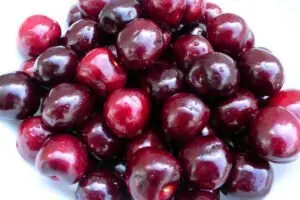
Other important things you can do throughout your day are using good posture and avoiding carrying heavy objects with the affected arm and shoulder. Avoiding heavy items includes moving a book bag or purse from your affected shoulder to the other so that the shoulder gets maximum rest. If you must carry something heavy, hold it close to your body and not to your side. Lightly stretching the shoulder throughout the day is also helpful in reducing stiffness but not to the point that it causes pain. At night, try not to sleep on the painful side.
Fish is full of fatty acids (otherwise known as Omega 3’s), protein and minerals. Fatty acids help inhibit your inflammation by interfering with cells that are key players in your body’s inflammatory process.
If you already have arthritis, consuming fish on a regular basis may help reduce your joint swelling and pain. The fatty acids found in fish also contain natural chemicals that can restore and lubricate your joints.
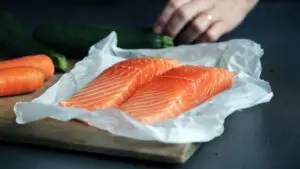
More lubrication in your joint means less friction and rubbing together, which minimizes knee pain. Fish is also high in vitamin D, which can help relieve your joint pain. Most people are deficient in Vitamin D, even without realizing it, which can contribute to their joint and muscle pain in the knees.
Do not like fish? You can get the same natural benefits by taking a fish oil supplement. You can find fish oil supplements online, in a vitamin store or in your grocery store.
Turmeric is a spice that is common in Indian cuisine. In addition, it is one of the spices that has anti-inflammatory effects that is perfect for helping your chronic joint pain.
This is due to curcuminoids, which is a chemical found in turmeric and contributes to the spice’s yellow coloring. Curcumin acts as a blocker to NF-κB, which is a molecule that controls the inflammatory proteins in your body.
This spice is most effective when eaten with black pepper. Studies have shown that two grams a day is as effective as 800 mg ibuprofen for pain relief during walking and climbing stairs.
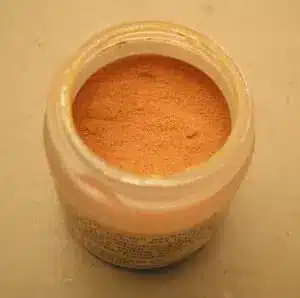
Not a fan of Indian food? You can take turmeric as a natural supplement and still receive the same benefits. Turmeric is found with other vitamins either online or in your grocery store.
Garlic has the dual benefit of scaring away vampires and reducing joint inflammation.
This anti-vampiral contains diallyl disulfide, an anti-inflammatory compound that limits the effects of cytokines (a pro-inflammatory cell found in your body). In addition, selenium is found in garlic.
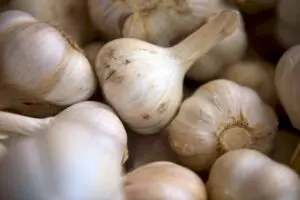
Selenium has been found to have an antirheumatic effect, which can be helpful if you are suffering from arthritis. Garlic is also rich in flavonoids, which are plant chemicals that clean-up damaging free radicals and fight inflammation.
One flavonoid, quercetin, limits leukotrienes, prostaglandins, and histamines (inflammation causing chemicals). Consuming garlic regularly can potentially prevent cartilage damage as well.
A study was shown that eating five grams (about one teaspoon) of garlic paste twice a day improved joint pain. Garlic also stimulates your blood circulation which can potentially help improve knee pain.
Do you know why Popeye never had knee pain? The man ate a lot of spinach. Spinach is rich in vitamins and nutrients, with one cup of spinach containing 56% of your recommended daily amount of Vitamin A and 181% of Vitamin K.
Vitamin K is a fat-soluble vitamin that is essential for your bone health and can help offset osteoarthritis. Vitamin K is involved with the production of proteins in bone, including osteocalcin, which prevents the weakening of your bones.
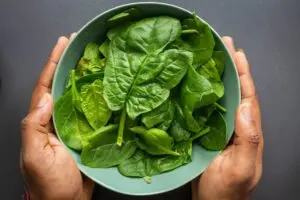
Spinach also has large amounts anti-inflammatory compounds and antioxidants, one of the largest being kaempferol. Kaempferol has been proven to decrease inflammatory agents associated with arthritis, reducing knee pain.
Spinach is also a good source for Vitamin E, which acts to protect your body against inflammatory cells and for Vitamin C which helps your body make collagen.
Collagen makes up a large part of cartilage, which keeps your joint flexible and mobile. A flexible joint is a pain free joint.
Bone broth is nutrient dense and full of iron, vitamins A and K, fatty acids, and other minerals. It also contains high amounts of gelatin, which is then broken down into collagen.
Collagen supports your joint and cartilage health, which can reduce knee pain and stiffness. Bone broth also contains amino acids, which act as building blocks for proteins for muscle and bone health.
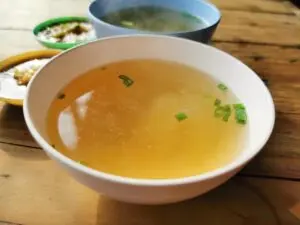
Glutamine is one of those amino acids that contributes to your joint health. Bone broth also contains proline and glycine which is used in your body to build connective tissue, including tendons and ligaments.
Also, bone broth is full of glucosamine and chondroitin, which make up the building blocks for your cartilage. They have also been found to help decrease joint pain.
There is no such thing as a magic food that cures all ailments, but these are some of the best foods for knee pain. These foods have strong anti-inflammatory properties or help with your bone and/or cartilage health.
In addition to eating these foods, be sure you eat a well-balanced diet and get plenty of exercise. Living a healthy, active lifestyle is the best medicine.
Based In Science, Elevated by Service By Vessel Crew Vessel’s passion for improving the lives of others is anchored in an enthusiasm for science and its basis in wellness. Since our founding,…
NADH, NAD+, And NAD Benefits, Side Effects, Dosage And Stacking By Vessel Crew Let’s learn a little about this co-enzyme called NAD. It can be referred to as NADH, NAD+, NAD, vitamin…